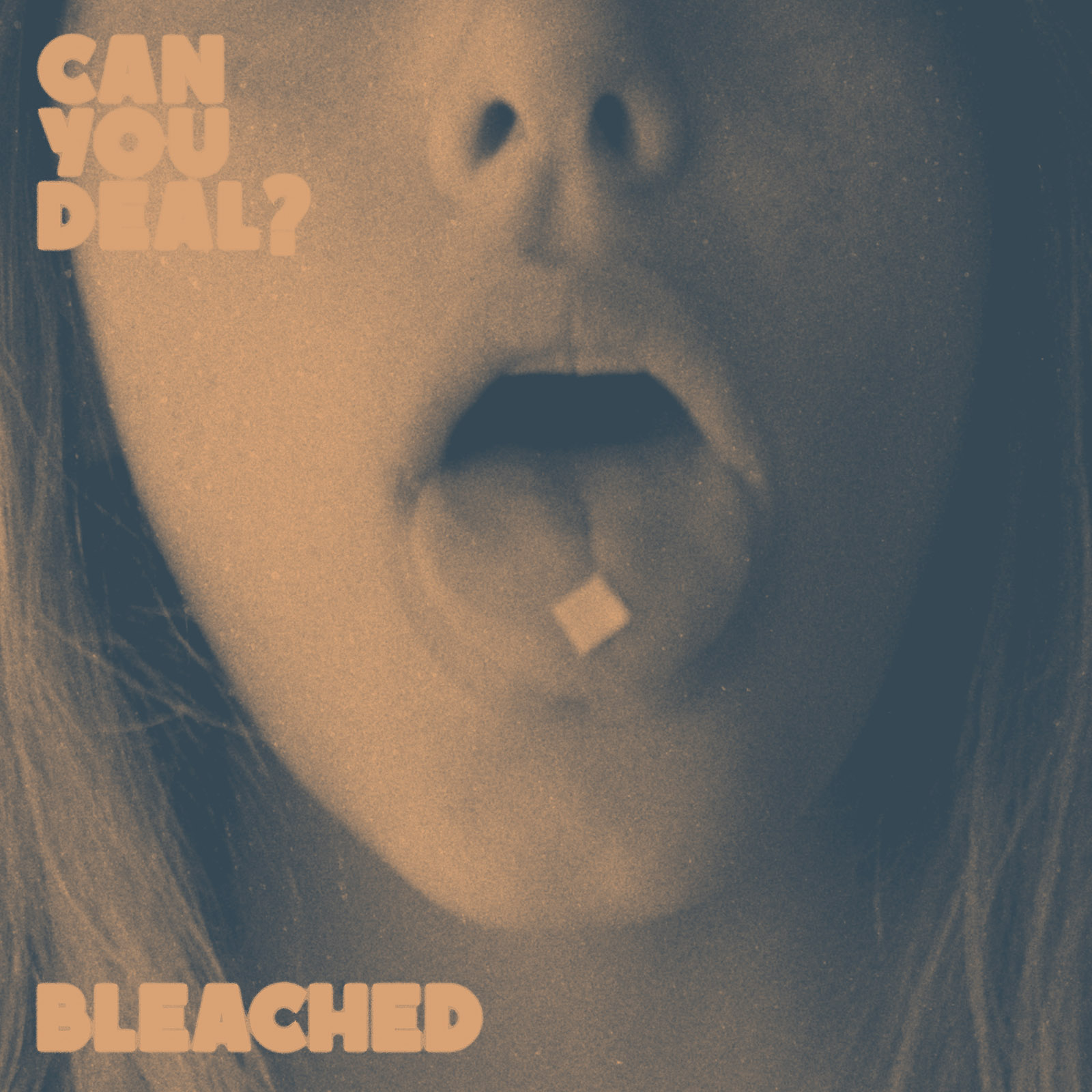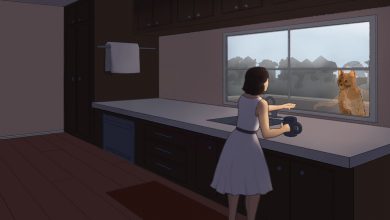Bleached Interview: Can You Deal?

Bleached, “Can You Deal?” (2017, Dead Oceans)
Again and again, we search for an answer that will lead to some “truth” once it is presented to the right person at the right time. Sometimes, however, the issue does not lie in obscure answers, but rather, in the content of the question itself. The Los Angeles based band Bleached aims to put an end to to the incessant ‘girl band’ rhetoric that defers attention away from the artistic goals of women artists on their new EP, “Can You Deal?”.
Bleached is the brainchild of the sister duo Jennifer and Jessie Clavin. After Mika Miko, the Clavin’s former band, dispersed in 2010, the two went separate ways, but knew that they wanted to continue playing music together. Jennifer explains, “Whenever I would come home to L.A., we’d try to record a song really quick. We ended up putting out the first seven inches before deciding that we wanted to take Bleached really seriously. And then three years ago, Micayla joined [as] our bassist…then Nick our drummer, joined a year ago, and we’ve all been playing together since then.”
The band put out “Ride Your Heart” in 2013, and “Welcome the Worms” in 2016, leaving critics and fans alike hungry for more. But while the members of Bleached have used their life experiences as a source of inspiration in their past work, “Can You Deal?” criticizes the types of questions women artists are asked by journalists, and the way in which the reductive ‘girl band’ label constraints artists’ ability to promote anything beyond a shallow understanding of their work. Jennifer elaborates on this source of frustration in a press statement:
“I create music and art because I need to. To express, to bond, to reconcile, and to connect. And to use my voice. To have it received with such a generic labeling as ‘girl band’ and consistently referenced as ‘female fronted’ is insulting and reductive.”
Bleached’s prior work disclosed their vulnerabilities to their fans: an emotionally abusive relationship, dealing with drugs and alcohol and the process of self-discovery. Nonetheless, the questions always circled back to a single topic— gender.
“Somehow the conversation usually derails into some variation of the following question: ‘What is it like to be a girl in a rock band?’ And the ensuing story will define us based on our sex. Why is gender pointed out in nearly all coverage of our band? Labeling me as a woman in a band just puts me in a box, and doesn’t allow everything else I am to be seen and heard. It’s 2017, Can You Deal with women playing rock and roll yet?”
The song’s music video perfectly embodies the message Jennifer describes. A city made of toy pieces is shown ominously in black and white. The frame rests on a newscaster working for “Singular World News” wearing a headpiece that connects him to the station. As the newscaster asks the members of Bleached repetitious questions, all revolving around being in a girl band, the city’s residents are seen wearing similar headpieces and being spoon-fed the same narrative. Eventually, the Bleached members cover the TV screens they are being interviewed from with four separate signs spelling out, “Can You Deal?” It is then revealed that the band had been using the interview as a distraction so they could turn off the generators connecting those living in the city to the news channel. The video ends with the whole city losing connection to the channel, leaving the entire city dark.
Jennifer further explains what inspired Bleached to explore this message in their work. “Since touring with ‘Welcome the Worms’, this crazy, personal album that we wrote, the majority of the questions [we were asked] were always, ‘What is it like to be a girl in a band?’ When Jessie and I were teenagers in a punk band called Mika Miko, it was the same thing, and that was over ten years ago… At the time, I was so thrown off by the question because this is me, my sister and my two best friends, and I think I realized that being in an all girl band meant that we were rebelling.”
Years later, Jennifer and her bandmates found themselves answering the same questions, despite growing frustrations. “You can describe me and my music as so many other things before you label me as a girl. What does saying I’m a girl have to say about the music I make?”
Although the categorization of women artists removes the focus from the meaning they put in their work, gender related issues have and continue to exist within the music industry. In the foreseeable future, what would need to be changed to escape the current method of categorization, while also creating a space in which artists can speak openly about the issues they experience within the music industry?
Pondering this dilemma, Jennifer responds,“I think if we were to stop gender labeling so much, then there would be more equality within the music industry, but at the same time, I think those types of things do need to be spoken about…I feel like as artists, we’re pretty vocal about the way we feel about things. I think it’s up to us to still think about those things, and obviously not stay silent. As women, it’s our job to say ‘This is unfair conduct happening,’ or ‘This is disrespectful to me and my field of work,’ and I think that needs to be talked about, but I think gender labeling still isn’t that though…I think bringing awareness to this is the first step to change…I think it has a lot to do with trusting your gut, and knowing what is respectful and what isn’t, and what should be talked about and brought to people’s attention, and I think that will help create more change in the industry and other industries…because if you really want to get into gender politics, I’m totally down to have a conversation about that, but if we’re just talking ‘What is it like to be a girl in a band?’, just a more basic, lazy question, then it’s different.”
Bleached is shutting down repressive avenues of dialogue through more than just their music. The band has created a space where women artists can share their work and perspectives on their own terms though the medium of a zine. To further forward this goal, all net proceeds from the zine will go to Planned Parenthood.
Jennifer explains, “The song came first, and then we had the idea that we could take it further with something that we had been talking about for so long, and [we thought] why don’t we just make the zine? Why don’t we just do it? I was so scared to put myself out there and send the email to the twenty people I have on my list that I knew…When I emailed everyone, it was…Hayley Williams, Kate Nash, Tegan [Quin]–[they] all wrote back so stoked to be a part of this zine, which I was stoked about, I was like ‘Okay, hell yeah, I made the right move!’ Some of the essays came back pretty quickly, and…it was just like everyone was saying similar things to how I was feeling, but in their own way. Now I’m reading over the zine…and I just couldn’t believe how many amazing quotes there are…It’s so freaking cool, and it’s also really cool because I feel like I was giving female musicians a space to share their story…and even some opinions don’t agree within the zine, and I think that’s really cool too because it’s eye opening in making us all see different views within this whole subject matter, and yeah, I’m just super proud of it.”
The questions that “Can You Deal?” asks of its listeners are directly tied to the questions bands are asked themselves. If we don’t actively question the motives behind certain lines of inquiry, and demand more from the media we consume, we will never receive the narratives that women artists intend to share with their fans. Only by becoming critical listeners and consumers may we finally answer “Yes, we can deal.”




